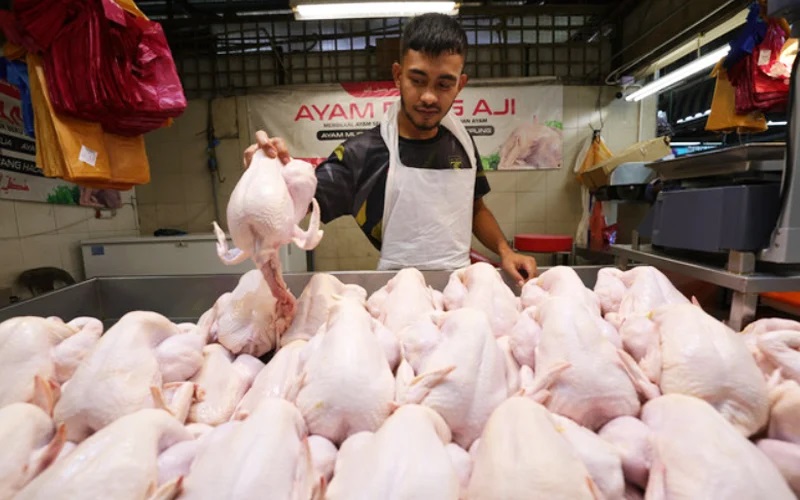Dr Fuziah Salleh, Malaysia’s Deputy Domestic Trade and Cost of Living Minister told the parliament that targeting chicken feed cartels—which account for 70% of production costs—has helped keep prices in check despite the removal of subsidies on November 1, 2023.
She said the ministry has been collecting daily chicken price data to monitor the strategy’s effectiveness.
“Although there are no longer subsidies, we regulate the supply chain and monitor prices, which have so far stabilized and in some cases even decreased. So, we focused on controlling production costs,” she noted.
Egg prices have also held steady since subsidies were lifted on August 1, with no reported disruptions to supply.
Food safety standards are robust
In another development, the Ministry of Agriculture and Food Security (KPKM) said Singapore’s continued imports of Malaysian poultry demonstrate that local food safety standards are robust.
The Federation of Malaysian Consumers Associations (Fomca) recently urged the government to phase out chlorine washes in poultry processing and prohibit ractopamine use across all food-producing animals, aligning Malaysia with higher European Union (EU) standards.
Ractopamine is already banned in more than 160 countries, including the EU, China, and Russia, but Malaysia permits the growth promoter in pigs though not cattle.
“Even though it’s chlorinated chicken, Singapore is importing the majority of our excess chicken and Singapore already imposes a high standard,” KPKM Secretary General Isham Ishak told local media.
He stressed that Malaysia’s domestic certification schemes – the Malaysian Good Agricultural Practices (myGAP), which certifies farms on food safety, sustainability, and worker welfare, and myOrganic, which certifies organic farming without synthetic chemicals or genetically modified organisms (GMOs) – already set a high bar compared to regional peers.
“In Malaysia, I mentioned myGap and myOrganic, that’s already a very high standard. Thailand does not have myGap or myOrganic. That’s why in their market, they have a special division that does all the safety checks to see that there’s no E coli, Salmonella – they have to do that, whereas we don’t have to because already in the farm, we are applying a higher standard so that the food that we supply to the market is already safe for human consumption,” Mr Ishak said.

